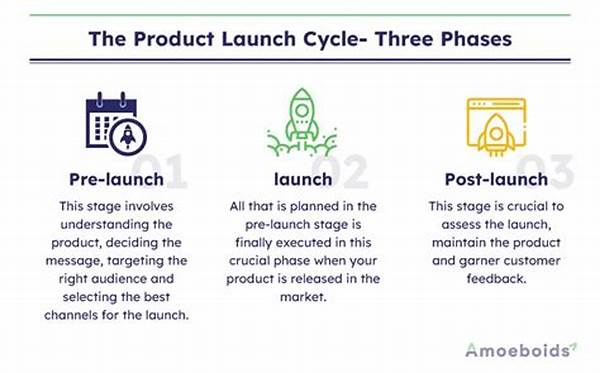
In recent years, the rise of social media has paved the way for a new breed of entrepreneurs: influencers. These digital mavens have capitalized on their online presence to build personal brands that resonate with their audiences. But how do influencers transition from creating engaging content to running successful online stores? This exploration into “how influencers start their own online shops” unveils the strategic processes and creative ingenuity required to bridge the gap between influence and entrepreneurship.
Read More : How Amazon Kdp Creates Millionaire Authors
Influencers have a unique advantage when it comes to launching online shops: they already possess a built-in audience that trusts and values their recommendations. This trust serves as a solid foundation for potential commercial endeavors. Whether it’s launching a clothing line, beauty products, or a curated collection of favorite items, influencers leverage their keen understanding of their audience to ensure that their product offerings align with followers’ desires.
The initial step for influencers is identifying their niche and what makes their brand distinct. This isn’t just about monetizing a following but solving a problem or fulfilling a need within their audience. For many, it’s about storytelling and aligning the shop’s narrative with the values and aesthetics that their audience has come to love. By integrating these elements, influencers ensure a seamless transition from content creator to business owner, an approach that requires finesse, creativity, and strategic planning.
Building Trust and Defining Your Brand
Influencers don’t become overnight successes within the e-commerce space by accident. It requires a deep dive into their analytics, understanding what content drives engagement, and a reflection on what their audience consistently responds to. By dissecting these factors, influencers can craft a Unique Selling Point for their online shop. This is where influencers’ innate understanding of social media marketing becomes pivotal—they know what promo codes, exclusive content, or behind-the-scenes access would excite their followers.
Furthermore, influencers employ storytelling as a powerful tool to convey the ethos of their products. Sharing the journey of creating a product, the inspirations behind it, and how it adds value to their lives can resonate deeply with followers. This emotionally-charged narrative, coupled with rational appeals like quality and utility, forms the bedrock of compelling e-commerce marketing.
—
Navigating the journey from being an influencer to becoming an entrepreneur involves strategic steps and a sharp understanding of one’s audience. Many influencers wonder how influencers start their own online shops without alienating their established followers. The secret lies in approaching this venture with authenticity and a genuine commitment to enhancing the lives of their audience.
Discovering Your E-commerce Niche
The first crucial step in the journey to starting an online shop is discovering a niche that not only resonates with an influencer’s brand but also solves a unique problem for their audience. Influencers often conduct surveys or engage in intimate dialogues with their followers to discern exactly what products or services they crave. This research-driven approach ensures that the products they eventually offer are highly relevant and in demand.
Collaborating with brands or even launching a standalone brand requires a thorough understanding of inventory, supply chains, and manufacturing. Influencers often collaborate with experts or use platforms like Shopify to streamline this process. The integration of e-commerce platforms with social media allows influencers to manage their online shops efficiently, ensuring followers can easily transition from a post to a purchase.
Utilizing Social Media Leverage
An influencer’s biggest asset is their social media reach. Exploiting platforms such as Instagram, TikTok, and YouTube allows for direct promotion of their online store. Content that features product use, behind-the-scenes creation, or testimonials from satisfied customers can strengthen the trust followers have in the influencer’s brand. The ability to seamlessly weave product promotion into regular content can enhance both reach and sales without appearing overly commercial.
Building a Community Around Your Brand
The success of an influencer’s shop lies not only in the quality of the products but also in the community that grows around it. Encouraging interaction through promotions, feedback solicitation, and customer stories can create an inclusive environment that underpins the shopping experience. This sense of community fosters loyal customers who become repeat buyers and even brand ambassadors themselves.
It’s crucial for influencers to integrate feedback mechanisms into their strategies. Answering queries, taking criticism constructively, and continuously iterating on products or their presentation can keep the audience engaged and invested. Moreover, providing exceptional customer service becomes a way to retain followers who appreciate the personalized touch.
—
These discussions address core elements of how influencers start their own online shops, exploring the frameworks and methodologies that drive success.
—
Entering the e-commerce space is not without its challenges. Influencers must navigate an array of obstacles as they transition from creators to entrepreneurs. Many are unfamiliar with the intricacies of logistics, legal compliance, and customer service—all crucial to an online shop’s success.
The Reality of Online Shop Management
The operational side of e-commerce, including managing inventory, handling returns, and ensuring product quality, can be daunting. Influencers benefit from partnering with logistics companies or hiring experienced personnel to manage these aspects. Understanding local regulations regarding online sales taxes and consumer rights can prevent potential legal issues.
Collaborations and Brand Building
Collaborative ventures between influencers and established brands can ease the transition. By leveraging their influence, they can negotiate better product development and marketing deals. These partnerships not only bring credibility but also provide vital industry insights and resources that a solo venture might lack.
Creating a Dedicated Team
As an influencer’s business grows, hiring a team becomes necessary to maintain operational efficiency and customer service standards. From social media strategists to customer service personnel, building a team that aligns with the brand’s vision is critical. This delegation allows influencers to focus on high-level strategy and innovation.
The ability of influencers to maintain authenticity while becoming brands unto themselves is crucial to their sustained success in the e-commerce sphere. By caring for their community, adapting to change, and crafting compelling narratives, influencers can thrive in the online retail landscape.
—
Crafting an online shop that resonates with a community requires dedication and strategy. These explanations provide insight into the process of how influencers start their own online shops.


